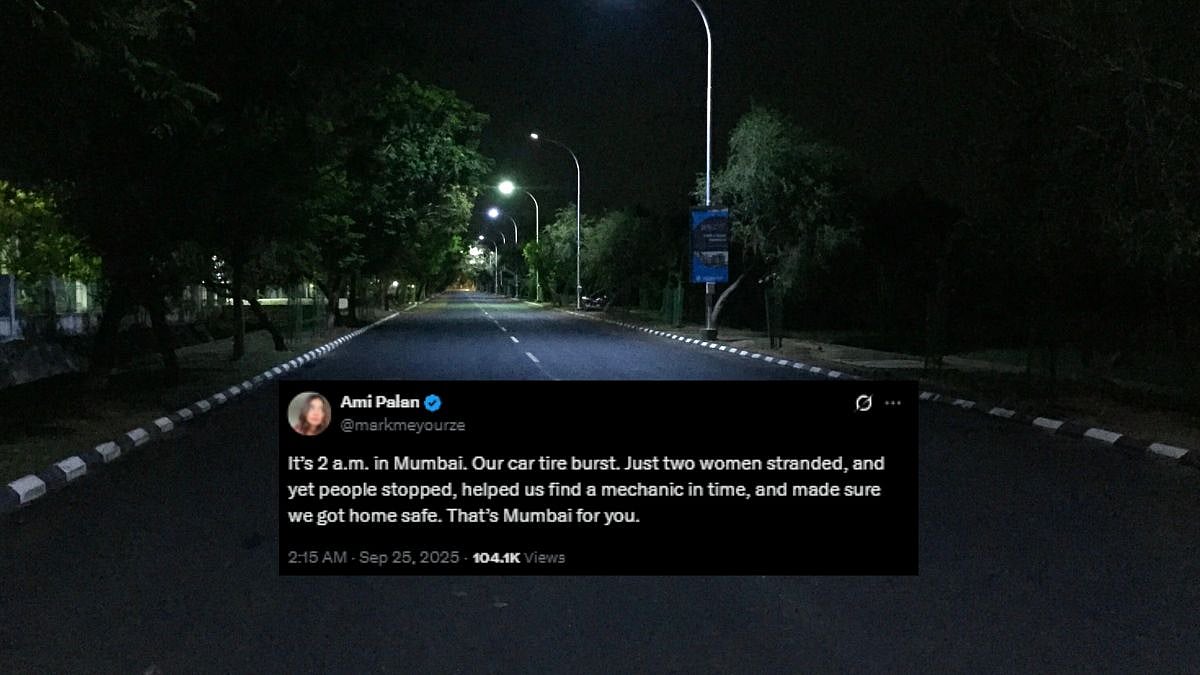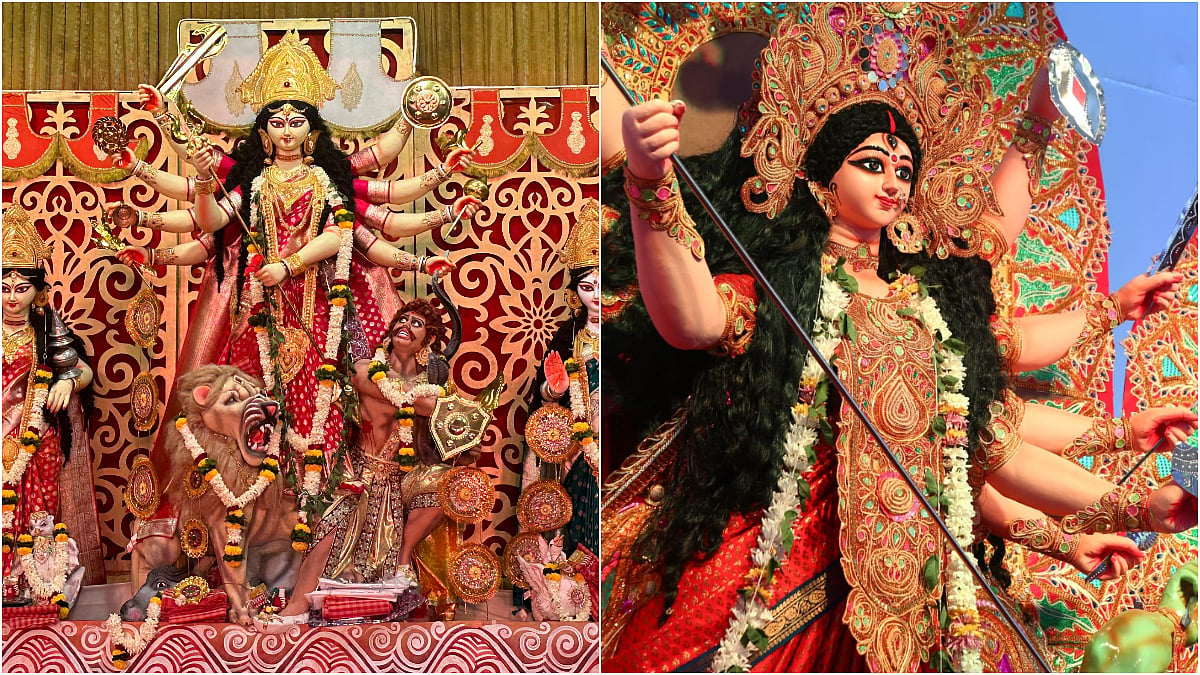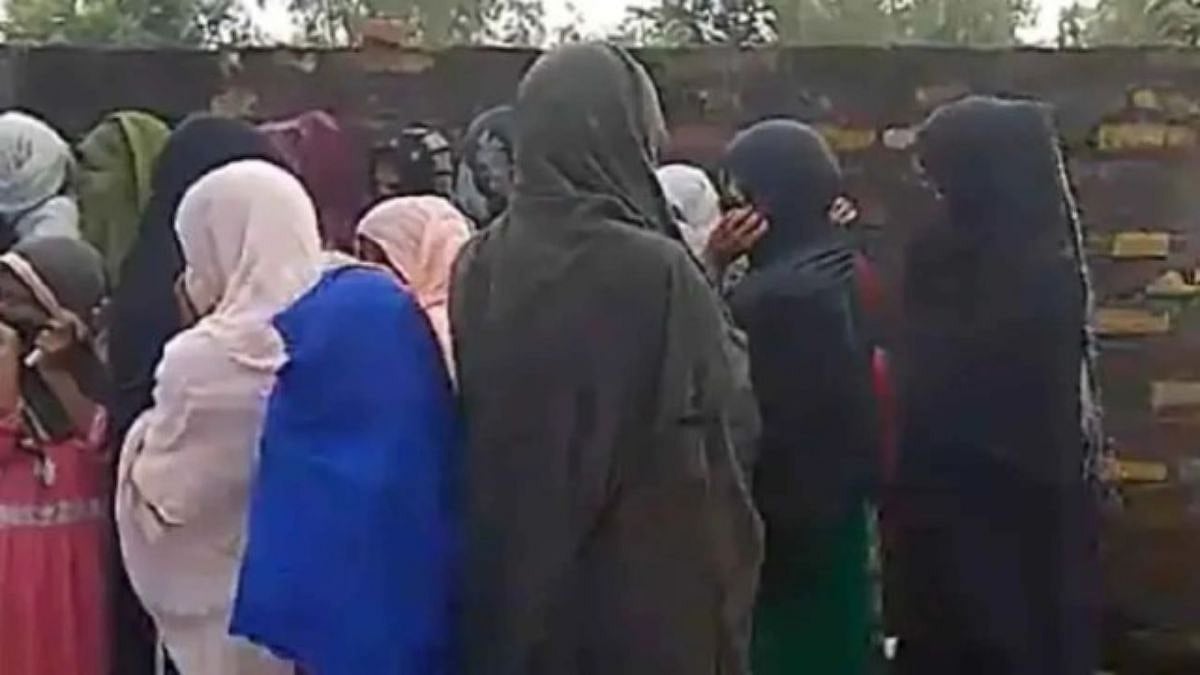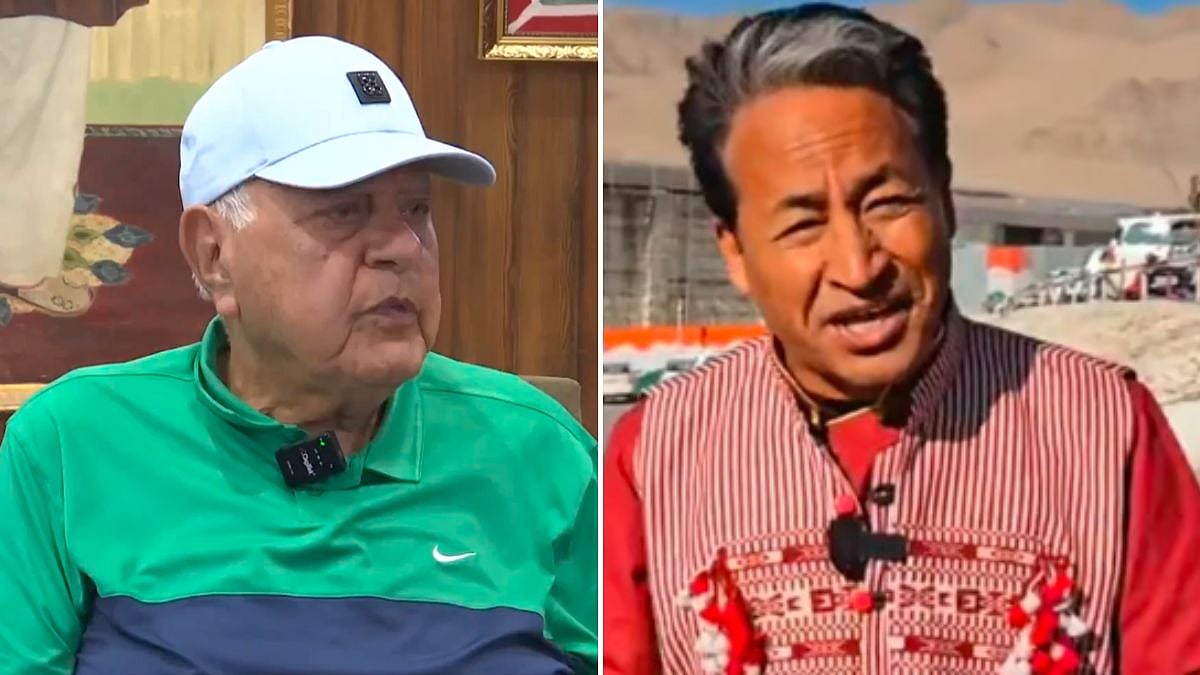Srinagar: Jammu and Kashmir National Conference (JKNC) President and former Chief Minister of Jammu and Kashmir, Farooq Abdullah, on Thursday advised the BJP-led Central government to take a lesson from the recent violence in Leh, Ladakh.
The unrest stemmed from long-standing demands for statehood and inclusion in the Sixth Schedule. In a press conference, Farooq attributed the violence to frustration over unfulfilled promises, emphasising that similar assurances had been made to Jammu and Kashmir regarding statehood.
He stressed the unrest reflects local grievances, not external influences, highlighting Sonam Wangchuk's peaceful protests, including a hunger strike and barefoot march from Leh to Delhi.
The JKNC chief also warned of risks in border areas, such as Ladakh, especially with China's destabilisation efforts, and urged the Centre to engage in sincere talks with the people of Ladakh to address their aspirations and prevent further escalation.
According to him, the violence left four people dead and over 80 injured, including police personnel. Protesters torched the BJP office, police vehicles, and other buildings; police responded with tear gas and live fire.
"The reason behind the violence was that he (Sonam Wangchuk) was on a hunger strike for 14 days... For five years, he has been silently protesting over there that they should be listed in the sixth schedule and also be granted statehood. He even walked barefoot from Leh to Delhi to make himself seen... The youth might have thought that the promises made five years ago were all hollow. As a result, they couldn't contain their discontent and chose the path of violence. They burned the BJP office, police vehicles, and many other buildings. Police had to use guns and as per reports, four people have died and many are serious. 60-80 people are injured and undergoing treatment... This kind of incident happening in a border state is dangerous for national security, especially when China is always trying to destabilise the country... This should be resolved at the earliest without waiting for another spark. I dont think there is anyone behind this incident... This is the voice of the locals... The government should learn a lesson from this. They had promised J&K as well, that statehood will be given after delimitation and elections... They should learn from Ladakh," he told ANI.
The unrest followed a 14-day hunger strike by climate activist Sonam Wangchuk, who had been peacefully protesting for these demands for five years, even undertaking a notable barefoot walk from Leh to Delhi.
Authorities in Leh have imposed restrictions under Section 163 of the Bharatiya Nagarik Suraksha Sanhita, 2023, following protests demanding statehood and Sixth Schedule status for Ladakh that turned violent, leading to clashes with the police.

According to an order from the District Magistrate, an assembly of five or more persons is banned in the district; no procession, rally or march is to be carried out without prior written approval in Leh.
Meanwhile, Lieutenant Governor of Ladakh, Kavinder Gupta, chaired a high-level security review meeting on Thursday to assess the situation following protests demanding statehood and Sixth Schedule status that turned violent, resulting in clashes with the police.
He emphasised the need for heightened vigilance, stronger inter-agency coordination, and proactive measures to ensure peace, security, and public order throughout the Union Territory.
Earlier in the day, Legal Adviser of Leh Apex Body and Kargil Democratic Alliance, Haji Ghulam Mustafa, condemned the violence during Ladakh protests, and said that their protests over the past five years have been peaceful and that the government has been cooperative throughout.
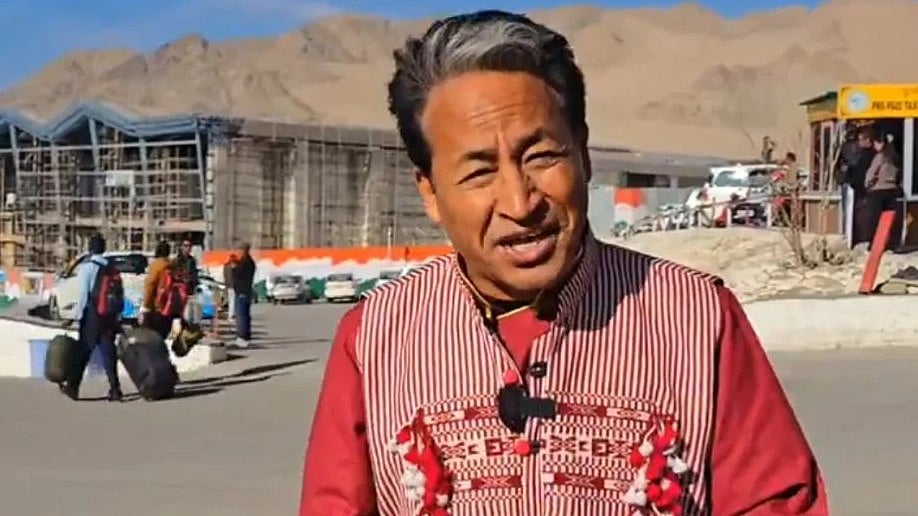
According to the Ministry of Home Affairs, Activist Sonam Wangchuk began a hunger strike on September 10, demanding the 6th Schedule and statehood for Ladakh.
It is well known that the Government of India has been actively engaged with the Apex Body Leh and the Kargil Democratic Alliance on the same issues. A series of meetings was held with them through the formal channels of the High-Powered Committee, as well as the Sub-committee, and multiple informal meetings with leaders.
The process of dialogue through this mechanism has yielded phenomenal results, increasing reservations for the Ladakh scheduled tribe from 45% to 84%, providing one-third of the seats in the councils for women, and declaring Bhoti and Purgi as official languages. With this process, recruitment for 1,800 posts was also commenced.
However, certain politically motivated individuals were unhappy with the progress made under HPC and have been attempting to sabotage the dialogue process. The next meeting of the High-Powered Committee has been scheduled for 6th October. Meetings are also planned for 25th and 26th September with leaders from Ladakh.

People of Ladakh have been demanding the inclusion of the Union Territory in the Sixth Schedule of the Constitution. The Sixth Schedule of the Constitution contains Article 244(2) and 275(1), which reads, "Provisions as to the Administration of Tribal Areas in the States of Assam, Meghalaya, Tripura and Mizoram."
(Except for the headline, this article has not been edited by FPJ's editorial team and auto-generated from an agency feed.)

